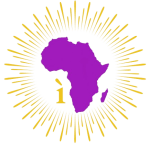ìAfrika’s Director, Dr Toyin Ajao, was recently featured in a PUNCH article explaining how historical wounds and harmful systems contribute to Nigeria’s collective trauma. The piece, which highlights the urgent mental health crisis in the nation, features Dr. Ajao’s analysis on the deep-rooted causes of this trauma and the path toward healing.

According to the article, 104 million Nigerians live below the poverty line and over 2,266 lives were lost to violence in the first half of 2025 alone. Psychotherapists featured in the article described the nation as being in “survival mode,” marked by deep distrust in authority, a normalisation of suffering, and public anger that manifests in daily life.
Dr. Ajao provided crucial context for this national state of being, stating that “intergenerational and collective traumas adversely impact intra- and interpersonal relationships, and influence how people relate, parent, lead, and dream.”
She identified the wounds of slavery, colonialism, and tribalism as foundational hurts that are sustained by harmful political, economic, religious, and cultural systems.
“It is visible in family relations where duty outweighs love, education structures that discipline instead of nurture, religion’s shaming and blaming culture… and patriarchal dominance choosing hierarchy over collaboration,” Dr. Ajao explained. These dysregulations, she argues, result in “internalised (self-) hatred, micro/macro-oppression, mental illnesses, and psychosomatic health issues.”
To break this cycle, Dr. Ajao proposed a clear, three-part pathway to recovery:
- Awareness: Cultivating individual and collective awareness of the systems stacked against us.
- Reflection: Examining how dysfunctional systems like capitalism, patriarchy, poverty, fragmented upbringing, and toxic leadership and relationships reinforce trauma.
- Inner Transformation: Reprogramming our inner landscape through Afrocentric holistic interventions to “restore our identity, interdependence and inter-connectivity.”
As she concludes, healing our collective trauma is the essential step toward restoring a sense of unity, dignity, and mutual respect in Nigeria.
Read the full article on PUNCH Nigeria.
